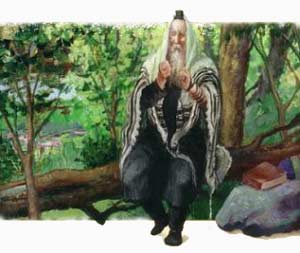There have been a few times in my life where I would read the first line of a story, or hear the opening verse of a new song, and would need to immediately stop because I was not mentally prepared for what was happening. This happened when I first stumbled upon Octavia Butler’s Parable of the Sower. I had only planned on reading a good dystopian fiction novel, recommended by a trusted friend. Instead I was given keys to understanding myself and those around me; nuggets of wisdom that fit perfectly into the puzzle of the spiritual story I was, at the time, just learning to tell by living this life.
We never know will whisper to us one day, sink into our subconscious and create a new structure of thought and beliefs to live by. The body-mind is in a constant mode of receiving and responding — it takes in what it is fed then uses it to understand and react to the world. For the most part, if we feed it enough beautiful things it will begin take itself to be beautiful and then more easily see beauty in the world. On the other hand, the more unfiltered ugliness we allow through our eyes, ears and other sense doors, the more likely it will be changed to suit that input instead. For example, at one point in my life I was heavily influenced by music that repeatedly encouraged me not to “love them hoes.” The behavior that resulted from that line of thinking was just short of tragic. That being said, I was also being equally influenced by Gospel songs that provided encouragement in times of struggle; which gave me the courage and confidence to move away from destructive behaviors.
We often think of Spirit Guides as other worldly beings who magically whisper in our ear or come to us unbidden in our dreams to give us the wisdom and support we need to live purposeful lives. Or we think they are specially capable individuals who have broken through to another dimension of knowing and are able to provide us with a brand new understanding. But let us remember, there is no separation from us and God — everything is God, and everything is Guiding. The way a child laughs on the street could be your guide that day, a sweet morning ritual, rock music played loudly, jazz music played softly, or vice versa! It could even be a dystopian sci-fiction novel…Everything you touch ends up changing you.
The woman in the card has two figures whispering in her ear — I suspect one is saying beautiful things and the other not so much. This reflects the dualistic world we live — in which we have equal access to what perfects our being as well to what can cause us harm. Creating space for love and peace and all good things is a practice that never ends, but you are never alone in this work: All that you touch you change, and all that you change changes you.
May you choose your guides wisely.
K
.
.
.
If there’s a quote you would like featured in these posts, please send it to me through message or in the comments section.
“Black Angel Cards” by Zenju Earthlyn Manuel are the Tarot cards featured in these posts. You can get your own Black Angel Cards at http://blackangelcards.com/





